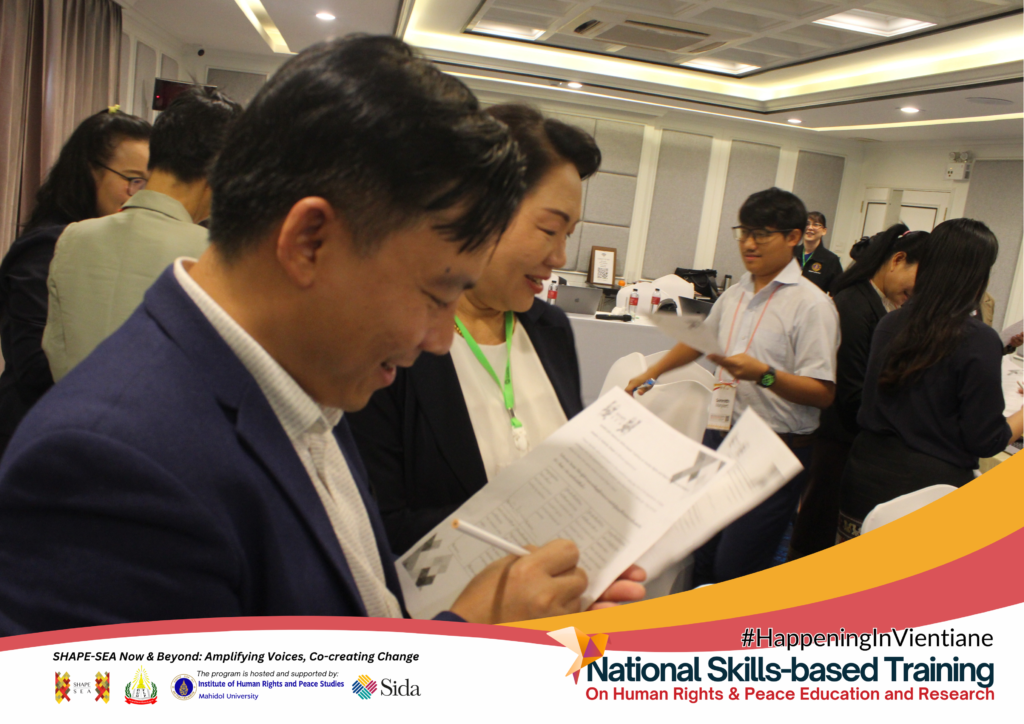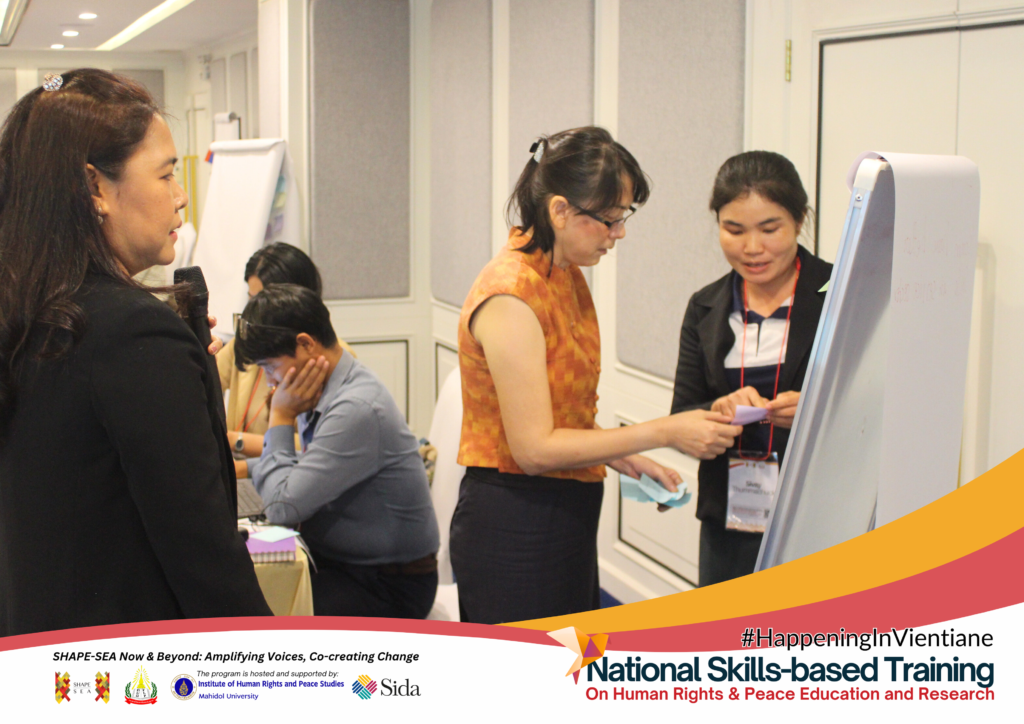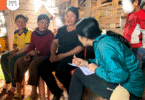![]() Continutation of SHAPE-SEA and NUOL Bilingual National Skills-Based Training on Human Rights and Peace Education and Research in Lao PDR
Continutation of SHAPE-SEA and NUOL Bilingual National Skills-Based Training on Human Rights and Peace Education and Research in Lao PDR
March 27-28, 2025 | Vientiane, Lao PDR

The second day of the National Skills-Based Training in Vientiane focused on fundamental human rights principles and emerging themes, particularly Business and Human Rights. This session was facilitated by Dr. Kalpalata Dutta of AUN-HRE and Asst. Prof. Dr. Naparat Kranrattanasuit of IHRP, Mahidol University, who provided insights into the responsibilities of businesses in upholding human rights and the challenges faced in the ASEAN context.
Key discussions also covered the emergence of artificial intelligence (AI) and its implications for digital rights, particularly in areas such as data privacy, freedom of expression, and algorithmic biases. As AI-driven technologies continue to shape governance, security, and economic systems, the discussion also covered opportunities and risks posed by these advancements. The morning session further explored gender roles, highlighting how societal expectations influence rights and opportunities in different contexts.



In the afternoon, the training shifted toward Human Rights and Peace Research, emphasizing the identification of research gaps and the integration of research into education. Prof. Vilay Langkavong led discussions on the Lao context, providing critical perspectives on the country’s human rights landscape. Meanwhile, Dr. Suphatmet Yunyasit guided participants in understanding methodologies for peace research, violence, and conflict studies, drawing on examples from the Deep South of Thailand.
On Day 3 of the program, participants were tasked with proposing a Bachelor of Arts (BA) course or a training workshop based on the theme of their expertise. The aim of the activity was to develop a course that addresses three fundamental building blocks—Knowing, Valuing, and Acting—through class activities, campaigning, or other forms of activism. Dr. Yunyasit encouraged participants’ to understand learning blocks and what ways can be integrated into the design of an impactful course or workshop, especially in the context of human rights advocacy, peacebuilding, or social justice.

Before the day ended, participants shared their key takeaways and insights from the discussions. Many expressed a deeper understanding of how human rights and peace education can be integrated across different fields, particularly in law, legal studies, and gender and development studies. They also explored ways to incorporate these principles into their teaching, equipping students with critical perspectives on justice, equality, and conflict resolution, vernacularized within the Lao socio-cultural and economic context.
—
![]() About SHAPE-SEA: SHAPE-SEA is a joint initiative of the ASEAN University Network – Human Rights Education Theme (AUN-HRE) and the Southeast Asian Human Rights and Peace Studies Network (SEAHRN). The program is supported by the Swedish International Development Cooperation Agency (SIDA). Since its inception, SHAPE-SEA has remained committed to building the capacity of scholars and researchers to advance human rights and peace in Southeast Asia.
About SHAPE-SEA: SHAPE-SEA is a joint initiative of the ASEAN University Network – Human Rights Education Theme (AUN-HRE) and the Southeast Asian Human Rights and Peace Studies Network (SEAHRN). The program is supported by the Swedish International Development Cooperation Agency (SIDA). Since its inception, SHAPE-SEA has remained committed to building the capacity of scholars and researchers to advance human rights and peace in Southeast Asia.
![]() Follow the news of the Institute for Human Rights and Peace Studies at: https://ihrp.mahidol.ac.th/
Follow the news of the Institute for Human Rights and Peace Studies at: https://ihrp.mahidol.ac.th/
#IHRP #Humanrights #Peace #HumanRightsEducation #Research #AUNHRE #SHAPESEA #GlobalCampus #LaoPDR #Vientianne #HappeningInVientianne #Laos




